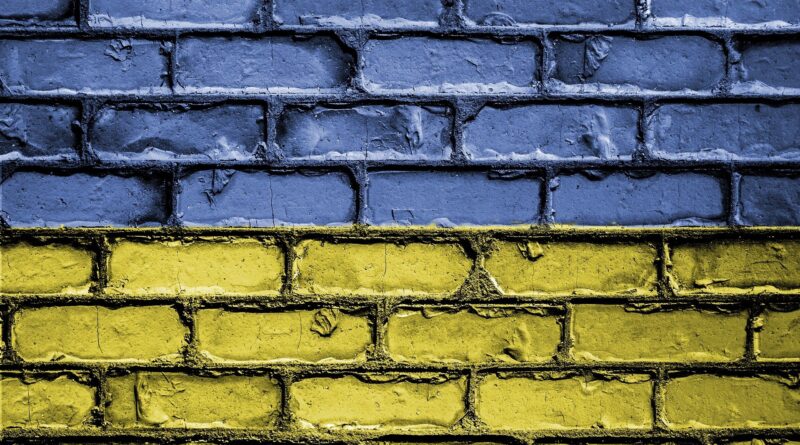UK urged to ease entry of Ukrainians as EU ministers discuss refugee plan
Calls are mounting on the UK government to provide an easy entry route for people fleeing Ukraine following Russia’s military invasion this week. On Sunday, an extraordinary meeting of EU interior ministers will discuss a plan for the reception of refugees.
As Russian troops reached Ukraine’s capital Kyiv on Friday, thousands of people sought sanctuary in neighbouring states and elsewhere in Europe, often where they have family members.
Poland, Slovakia, Hungary, Romania and Moldova are providing support and setting up reception facilities. More than 150,000 Ukrainians have crossed into neighbouring countries since the start of the invasion, said the UN High Commissioner for Refugees Filippo Grandi on Saturday.
Other European countries are preparing to receive refugees. Ukrainians do not need a visa to stay in the Schengen area for up to 90 days so they can immediately travel to the EU.
Ireland, which is not part of the Schengen agreement, lifted visa requirements for Ukrainians on Friday.
“I am appalled by the Russian invasion of Ukraine. We stand with the Ukrainian people and we will play our part in assisting them in their time of need,” Irish Minister of Justice Helen McEntee said on Twitter.
EU interior ministers will hold an extraordinary meeting on Sunday afternoon to discuss a refugee plan as the UN estimates five million Ukrainians could flee abroad.
According to media reports, the EU should agree a distribution of refugees in EU countries proportional to the quotas received from the EU budget and taking family reunifications into account.
Visa procedures for long stays should be facilitated. In addition, substantial funds should be provided to Poland, Slovakia, Hungary, Romania and Moldova (which is not part of the EU) as they will manage most of the arrivals.
It is believed many Ukrainians who do not have family elsewhere will cross into neighbouring states and stay there until they can return home.
Visa required for the UK
While the crisis escalates, citizens from Ukraine still need a visa to enter the UK.
The Home Office announced on Friday a temporary visa concession waiving fees for “family members of British nationals who usually live in Ukraine.” But no special route has been established to facilitate the arrival of refugees.
The centre receiving visa applications in Kyiv has been closed and the Home Office is re-directing family members of British nationals to a new one in Lviv, some 500 km from the capital and near the border with Poland.
Alternatively, the Home Office says, applications can be made at visa centres in nearby countries, Poland (Warsaw), Romania (Bucharest), Hungary (Budapest) and Moldova (Chisinau). An additional pop-up centre in Rzeszow, Poland, “will be operational from next week for dependants of UK nationals”.
Close family members of UK nationals entitled to the concession are spouses and civil partners, unmarried partners, parents of minors, minor children and adult carers to persons with medical conditions.
Anyone else can apply for other visas in nearby countries, the UK government said. In its public communications, the Home Office has not specified whether requirements such as income and kowledge of the English language, or fees, will be waived.
Wilson Solicitors, a law firm in London, said on Saturday night that Ukrainians arriving from France to join family in the UK were being refused entry because they did not have a visa.
The lawyers called on the UK government to allow visa-free entry on humanitarian grounds to Ukrainians with family in the UK arriving from European countries.
The firm also urged the Home Office to extend the visa concession to family members of Ukrainians settled in the UK, reminding that an adult dependent visa currently costs over £3,000.
Several people in the past days have taken on Twitter to report difficulties to bring Ukrainian family members to the UK.
An entirely forgotten group
The Home Office appears to have also overlooked an entire group of people entitled to reach families in Britain.
Ukrainians who are family members of EU citizens with settled or pre-settled status in the UK have the right to join them under the UK withdrawal agreement from the European Union.
The usual application procedure also involves a visit to a visa centre outside the UK to provide biometric data and a waiting time of a couple of months, experts say. The Home Office has not provided any directions for this group.
On Friday, Settled, a charity set up by EU nationals to help people in the UK protected under the withdrawal agreement, called on the UK government to treat Ukrainian family members of EU citizens like family members of UK citizens.
The group also urged the UK government to accept online applications, like EU citizens had to do to secure their post-Brexit status.
“The EU settlement scheme has been a very digital process, where people could scan their documents online and get an answer very quickly. If people in Ukraine have equivalent documents, this could provide an easy solution,” Settled CEO Kate Smart.
In addition, eligibility criteria should be expanded to include not only Ukrainians who are “close family members” but “extended family where dependency can be demonstrated,” the organisation argued.
Settled has 10 staff and some 120 volunteers running phone lines and Facebook groups in European languages. Mrs Smart said they were ready to open an extra line for Ukrainians if a clear path were provided by the Home Office.
Pressured to change
The Home Office raised the Ukrainian flag on Friday and automatically extended the visa of Ukrainians already in the UK. But it came under heavy criticism from the opposition on Saturday for not having facilitated the entry of Ukrainians fleeing the conflict.
Labour MP and Shadow Foreign Secretary David Lammy wrote on Twitter: “It is totally immoral that the Home Office is still applying normal visa restrictions to those fleeing Ukraine”. Lammy urged the government to “provide a simple sanctuary route to the UK for all who need it”.
Home Secretary Priti Patel rejected the criticism saying this was “simply untrue.”
Immigration Minister Kevin Foster also faced huge backlash after tweeting that, to enter the UK, Ukrainians could still apply for other visas such as that for seasonal workers.
The tweet was later deleted and Prime Minister Boris Johnson responded to journalists that the UK was keen to take refugees.
UK charities working in the sector however reminded that the UK parliament is currently discussing an anti-refugee law, the Nationality and Borders Bill. Among other measures, the bill would facilitate the deportation of asylum seekers arriving in the UK illegally after having travelled through other countries where they could seek protection.
A petition launched by Freedom from Torture on Change.org and supported more than 90 organisasations is calling on the government to remove the clause that “severely punishes” Ukrainians and other refugees forced to take irregular journeys, and to create a resettlement programme receiving a minimum of 10,000 refugees in the UK every year.
At the time this article was published the petition had collected over 120,00 signatures.
Claudia Delpero © all rights reserved
Image via Pixabay
Europe Street News is an online magazine covering citizens’ rights in the EU and the UK. We are fully independent and we are committed to providing factual, accurate and reliable information. As citizens’ rights are at the core of democracy, our website and newsletter are free. If you found this article useful, please consider making a contribution so we can continue and expand our coverage. Thank you!






